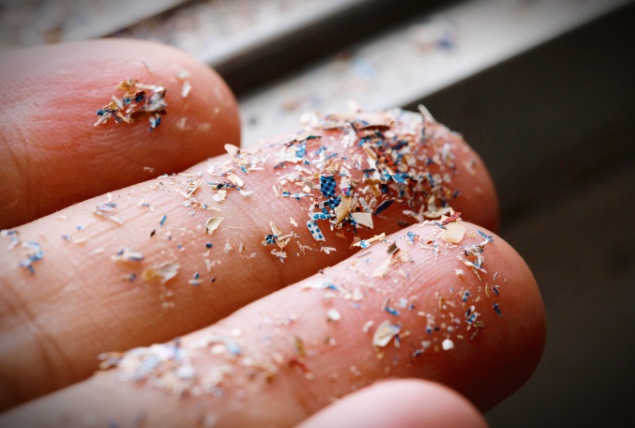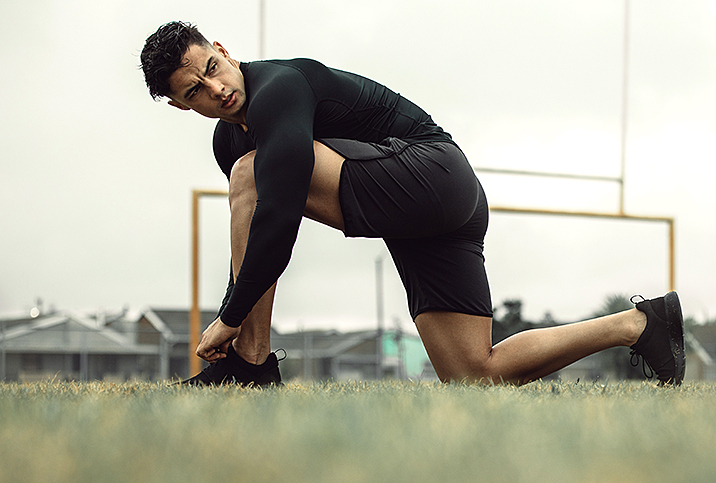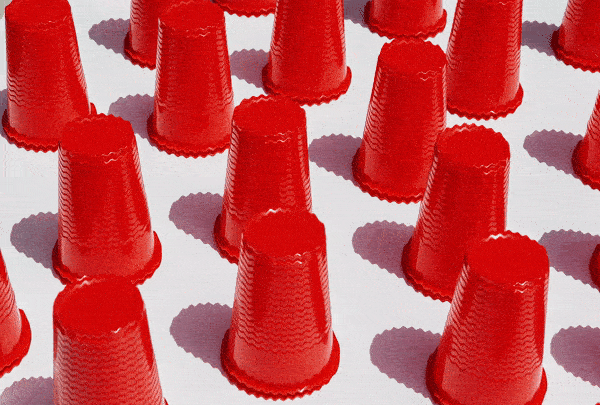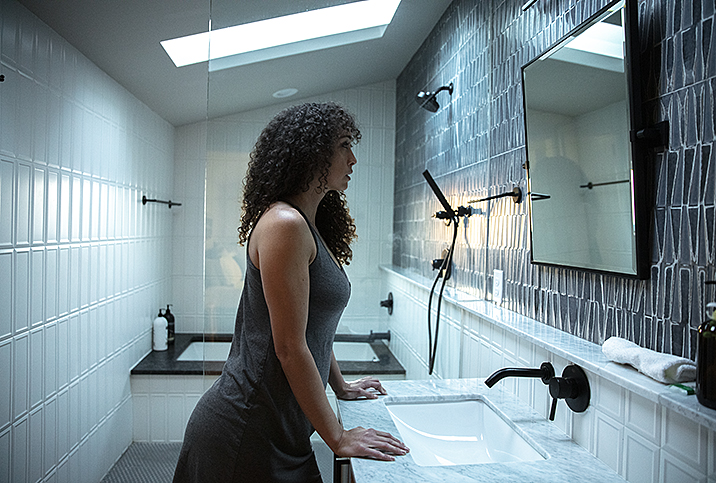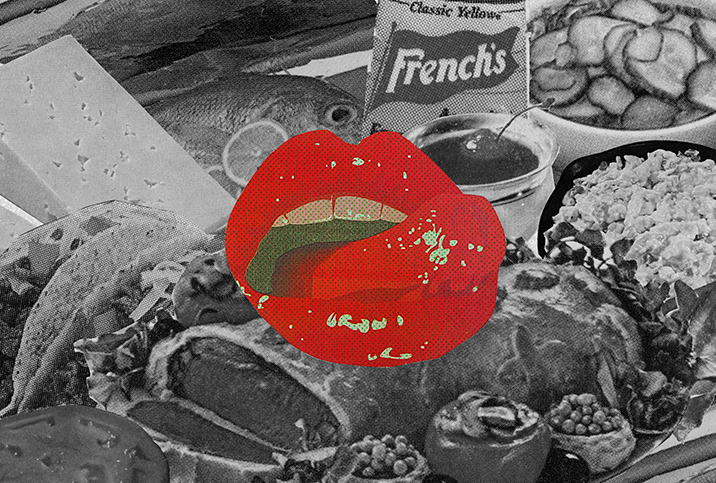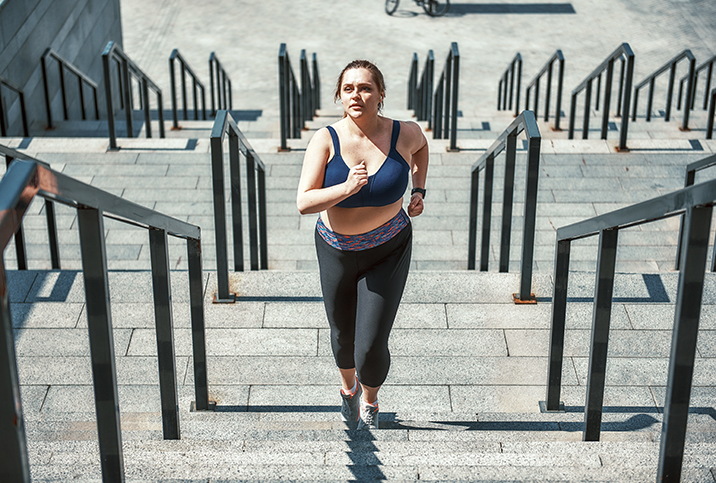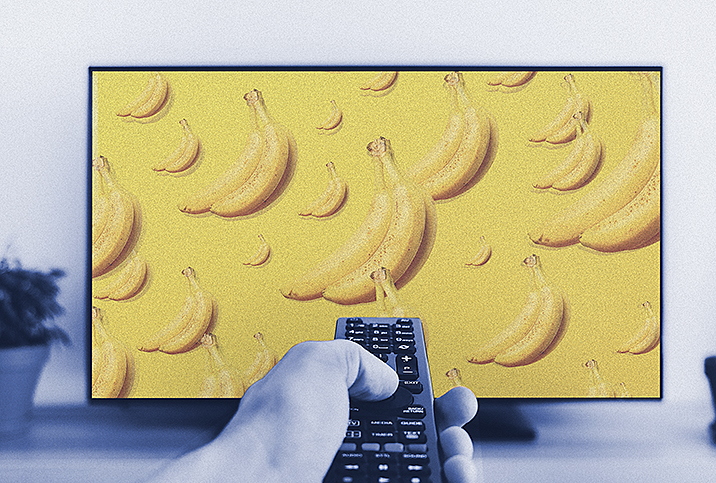Body Image Can Be Harder in Same-Sex Relationships

Sometimes when I look at my girlfriend, I can’t stop thinking about how sexy she is.
And sometimes when I look at my girlfriend, I’m flooded with envy. I wish I had her legs. Or her boobs. Or other parts of her body that seem perfect on her and imperfect on me.
I’ve struggled with body image and comparison for most of my life. I remember being a kid in the back seat of my friend’s parent’s van, thinking about how I disliked the way my legs ballooned when I sat. I’d look at my friend’s legs and think, "Hers aren’t as big. Mine must be bad."
Later on, these concerns turned into an eating disorder.
I’d do almost anything to make the envy and comparison go away. My girlfriend tries to help by complimenting me often: "I wouldn’t change anything about you," she’ll say. But it’s still not enough, which leaves me feeling hopeless.
I find it interesting that I’ve struggled with body image more while dating her than when I dated men, despite her encouraging me more often. I think the main reason is this: My girlfriend and I are both held to the same societal beauty standards, and I can compare our bodies more directly than I could with a man.
I can’t tell if this makes me relieved or sad, but I’m not alone in these experiences. According to a 2020 study by the International Journal of Eating Disorders, queer people reported more severe eating disorder symptoms than cisgender, heterosexual individuals, and "mostly heterosexual," bisexual, and lesbian women are more likely to report binge eating, per a 2009 study by the Journal of Adolescent Health. While eating disorders aren’t only about body image, dissatisfaction can play a significant role.
Experts weigh in on why this happens
Rachel DuPaul, Ph.D., a Minnesota-licensed psychologist and owner of Better Balance Psychology, explained why body image concerns may pop up more in same-sex relationships. "When there are same-gender individuals in a friend group, there are usually all sorts of comparisons, including body comparisons," she said. "Now think about a same-gender romantic or sexual partner and how vulnerable, pure and raw this can be. This partner is the one who sees you naked the majority of the time, and you them. And if your body doesn't look like their body, you may get uneasy or anxious. Which one is ‘right’?"
On top of this, many queer people face discrimination, stress and trauma, which a 2020 review of the literature in the Journal of Eating Disorders confirmed can lead to an eating disorder or body image issues. Examples of stressors include the fear of being rejected or kicked out when coming out, verbal discrimination and physical violence. To cope and feel more in control, LGBTQ people may focus on changing their bodies.
Gay men in particular tend to experience toxic body culture from their peers. They feel pressure to appear physically attractive and masculine to be accepted and seen as desirable by other gay men, according to a 2009 study published in Psychology of Men & Masculinities.
Rachel Rifkin, LMHC, a therapist and support group facilitator at The Alliance for Eating Disorders Awareness, said she’s observed this body-centricity in gay friends, colleagues and clients. "There is a lot of focus on the external body through fitness and aesthetics,” she said, “in a way that keeps gay men stuck in this limbo of wanting to be more than a body, yet wanting approval [and] acceptance of the gay community through body acceptance and expression.”
How to kick your body concerns to the curb
So what helps? Rifkin recommended creating a "body image spectrum" to better understand your emotions and the areas that make you groan when you look in the mirror. "Start with ‘body neutrality’ as the middle [of the spectrum], and think of other ways to describe the body in more positive and then negative descriptors," she advised. "'Body compassion, body love, body acceptance, body distortion, body dislike [and] body tolerance’ [are examples]. There are no ‘wrong’ descriptors."
She suggested noticing how your feelings change even though your body doesn’t, which means it isn’t your physical form that influences your perception as much as emotions, events, fears and other people’s commentary. After all, "fat" isn’t an emotion—if you "feel fat," you probably actually feel anxious, inadequate or unloveable.
As Rifkin mentioned, body neutrality can be easier to embrace than body positivity. The buzzwords "body positivity" are often shoved down people’s throats in advertising and glossy magazines, which can feel like a lose/lose for those with body image issues, who feel bad about the way their bodies look and then worse for not being “body positive” enough. Body neutrality, on the other hand, means focusing on what your body does for you, rather than the attached feelings or judgment.
DuPaul also suggested adopting a certain realism about the unchangeable facts of life. "So often we get caught up in comparing ourselves to others on things we have no control over, [such as] height,” she said. “But is this really serving a purpose other than making you feel like garbage? You can be disappointed you aren't taller or shorter or whatever, but that has nothing to do with your value and worth. Remind yourself you have no control over this, no matter how hard you try and attempt to let it go and refocus that energy."
DuPaul recommended therapy, too, which is advice that resonates with me. I owe most of my eating disorder recovery to therapy, and I’ll probably go for many more years simply because of how helpful it is.
According to DuPaul and Rifkin, one key sign you need to reach out for help is if body image concerns are consuming you, making you miss out on activities such as hangouts with friends. They also suggested being alert to caloric restriction, excessive exercise, purging (such as forcing yourself to vomit or taking laxatives), binge eating and other signs.
While I believe I’ll always struggle with body image to some degree, I find solace in knowing I’m not alone and help is available. While I’ll need to put in hard work during therapy sessions, knowing my girlfriend loves me and my body—weight gain and all—does help. The next time I want to tell my body it’s not good enough, I’m going to say something else instead, something my girlfriend tells me daily:
"You’re perfect just the way you are."







